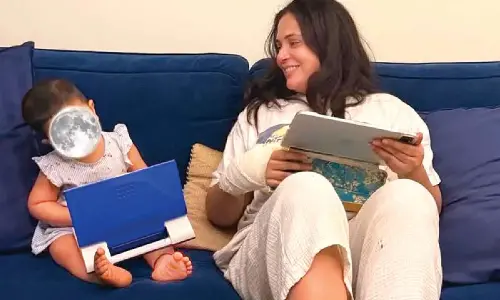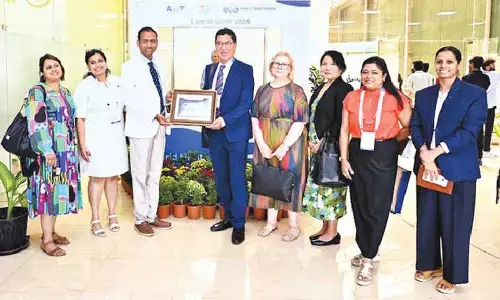Music can improve future relationship with your kids

Parents, take note If your children spend family road trips with earbuds firmly in place, all you need to do is turn up the music in order to improve the future relationship with your kids
Washington : Parents, take note! If your children spend family road trips with earbuds firmly in place, all you need to do is turn up the music in order to improve the future relationship with your kids.
The study was published in the Journal of Family Communication. The research was conducted by the University of Arizona, and the researchers found that young men and women who shared musical experiences with their parents during childhood and especially during adolescence reported having better relationships with their parents as they entered young adulthood.
“If you have little kids, and you play music with them that helps you be closer to them, and later in life will make you closer to them. If you have teenagers and you can successfully listen to music together or share musical experiences with them that has an even stronger effect on your future relationship and the child’s perception of the relationship in emerging adulthood,” said study co-author Jake Harwood.
Researchers surveyed a group of young adults, average age 21, about the frequency with which they engaged with their parents, as children, in activities such as listening to music together, attending concerts together or playing musical instruments together. Participants reported on their memories of experiences they had between ages eight and 13 and age 14 and older.
They also shared how they perceived their relationship with their parents now.
While shared musical experiences at all age levels were associated with better perceptions of parent-child relationship quality in young adulthood, the effect was most pronounced for shared musical experiences that took place during adolescence.
“With young kids, musical activity is fairly common, singing lullabies, doing nursery rhymes. With teenagers, it’s less common, and when things are less common you might find bigger effects because when these things happen, they’re super important,” said Harwood.
“I was interested in seeing if music, with all of its power and influence on society today, could perhaps influence and positively affect the parent-child relationship,” said study lead author Sandi Wallace.
For their study, Wallace and Harwood controlled for other ways children spent time with their parents growing up and were able to determine that music seems to have a unique effect.
They said two factors may help explain the relationship between shared musical experiences and better relationship quality.
The first is coordination.”Synchronization, or coordination, is something that happens when people play music together or listen to music together. If you play music with your parent or listen to music with your parents, you might do synchronized activities like dancing or singing together, and data shows that that causes you to like one another more,” said Harwood.
The other way music may strengthen relationship quality is through empathy. “A lot of recent research has focused on how emotions can be evoked through music, and how that can perpetuate empathy and empathic responses toward your listening partner,” she added.
Harwood and Wallace found evidence that both coordination and empathy play a role, although coordination appears to be more influential, based on study participants’ responses to questions measuring their empathy for their parents as well as how in sync they feel with their parents when working to complete a task together.
Shared musical experiences with their children don’t have to be complicated. In fact, simple activities such as listening to music in the car together may have an even greater impact than more formal musical experiences such as playing in a band together, according to the researchers’ findings.




















